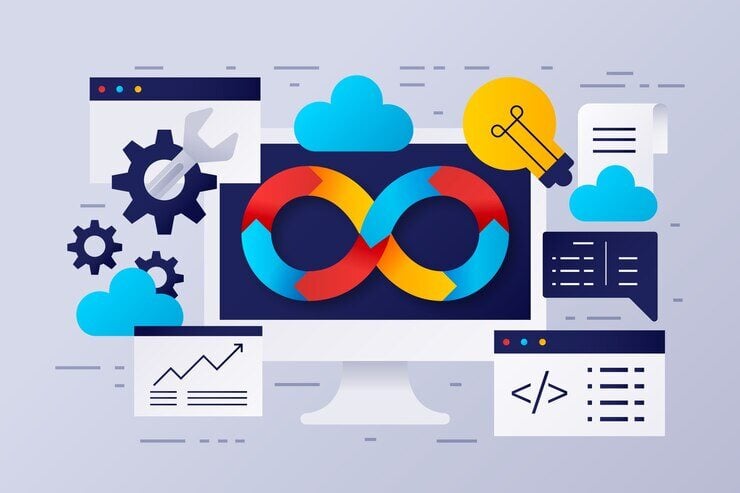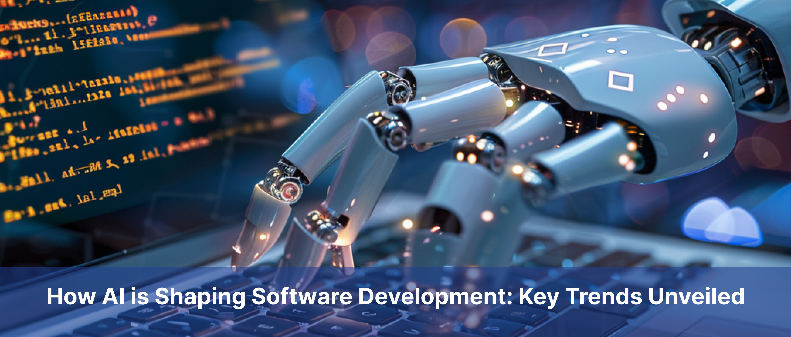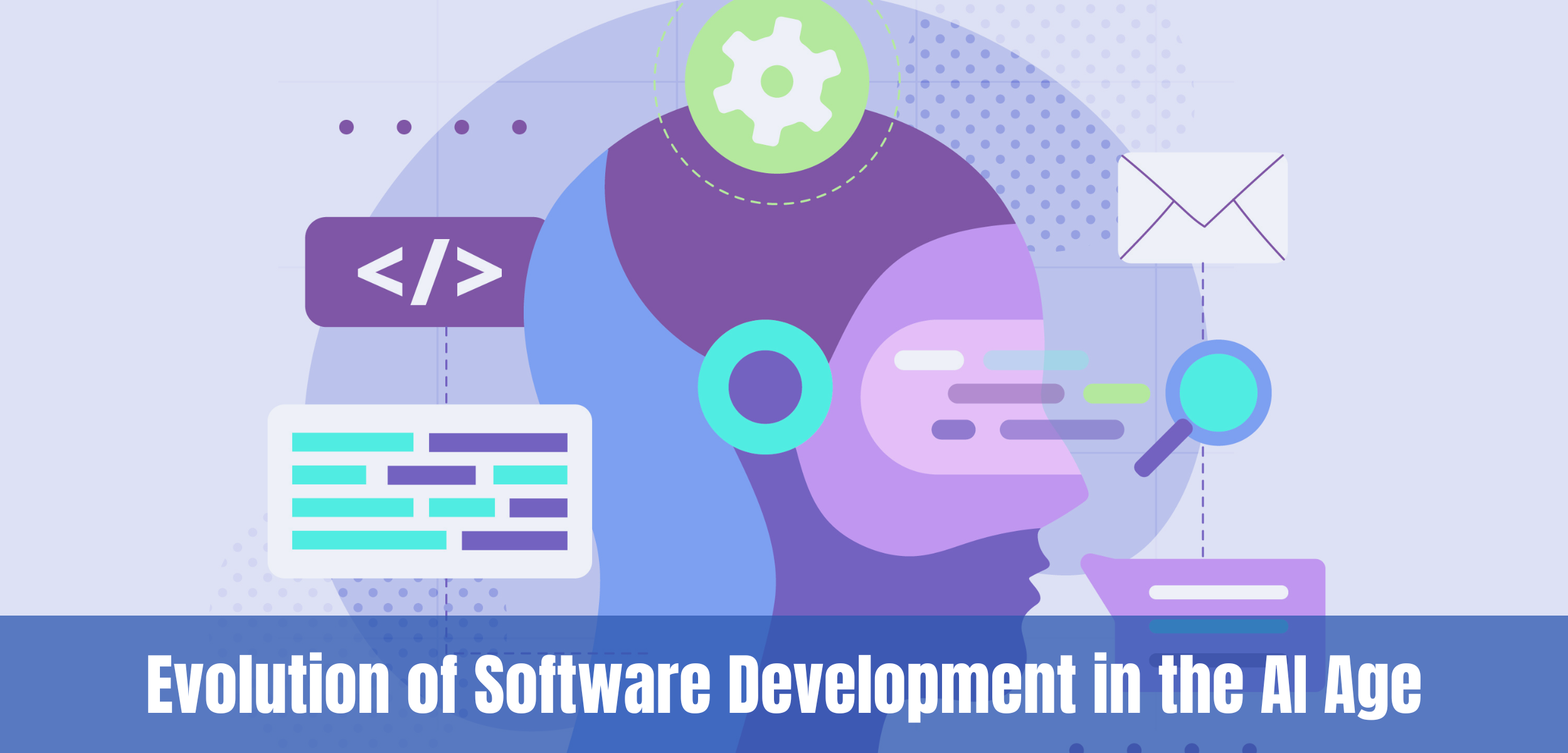In the relentless race to deliver high-quality software at ever-increasing speeds, the traditional methods of software development and operations are proving to be inadequate. Enter Generative AI—a technology that not only augments the capabilities of DevOps but fundamentally transforms how development and operational tasks are executed. From automating mundane processes to predicting system failures, Generative AI holds the key to unlocking new levels of efficiency and innovation in DevOps. This article delves into how this groundbreaking technology is reshaping the DevOps landscape and the immense potential it offers businesses in their journey toward continuous delivery.
A Snapshot of DevOps
At its core, DevOps is a set of practices that integrates software development with IT operations, aiming to shorten development lifecycles while maintaining high software quality. It combines culture, automation, and practices to streamline the software release process.
DevOps principles include:
- Collaboration between development and operations teams.
- Automation of routine tasks to eliminate bottlenecks.
- Continuous Integration (CI) and Continuous Deployment (CD), where code is tested and released in smaller, frequent iterations.
Despite its advantages, the process is not without its complexities. DevOps teams frequently encounter:
- Time-consuming manual processes: from code creation to deployment scripts.
- Human-induced errors: which can introduce defects.
- Cumbersome feedback loops: that slow down the release cycle.
Unpacking Generative AI
Generative AI, a subset of artificial intelligence, is designed to generate new content—whether it's code, text, images, or more—based on the patterns it identifies in input data. Unlike traditional AI, which focuses on tasks like classification and prediction, Generative AI has the ability to produce novel data, mimicking human creativity and problem-solving.
PwC's 2024 survey reveals that top-performing companies are actively changing their relationships with third-party cloud service providers to leverage AI capabilities, indicating a strategic shift towards AI-enhanced cloud solutions.
Key aspects of Generative AI include:
- Natural Language Processing (NLP): for interpreting and creating text-based content.
- Deep Learning: which analyzes complex data to generate accurate outputs.
- Machine Learning (ML): enabling systems to refine predictions based on historical data.
Incorporating such cutting-edge technology into DevOps opens new doors for improving processes and addressing long-standing challenges.
How Generative AI Integrates into DevOps
- Automating Mundane Development and Operations Tasks
One of the primary strengths of Generative AI is its ability to automate repetitive tasks that traditionally take up valuable developer time.
- Code generation: AI can automatically create boilerplate code or even generate entire modules based on requirements, saving time and reducing human error.
- Test script generation: Generative AI can generate testing scripts aligned with the code, ensuring more comprehensive and effective testing.
- Deployment automation: AI can generate configuration files and deployment scripts, streamlining the process and eliminating the risk of errors in manual configurations.
- Enhancing Code Quality and Stability
Generative AI doesn’t just help create code—it also improves the quality of code in real-time.
- AI-driven code reviews: These tools can instantly scan code for potential issues and suggest improvements.
- Bug detection: Generative AI can identify common coding mistakes, bugs, and vulnerabilities early, helping developers resolve them before they reach production.
- Continuous code refactoring: As AI tools learn from past revisions, they automatically optimize new code, ensuring improved stability and maintainability.
- Accelerating Continuous Integration and Continuous Deployment (CI/CD)
Generative AI is transforming the CI/CD process by reducing friction in the pipeline and enhancing overall speed and quality.
- Automated testing: AI tools can quickly test code under various simulated environments, identifying potential issues earlier in the development cycle.
- Shortened feedback loops: By automating the testing and integration stages, developers receive faster feedback, enabling quicker iterations.
- More frequent releases: Automated deployments free up time for developers, allowing for faster delivery cycles and reduced time-to-market.
- Predicting Failures and Ensuring Proactive Maintenance
One of the most exciting applications of Generative AI is its ability to predict system issues before they happen.
- Anomaly detection: AI can continuously monitor system health, flagging irregularities or potential risks.
- Predictive failure analysis: By analyzing historical data, AI can forecast where problems might occur and offer proactive solutions to mitigate risks.
- Automated remediation: In some cases, AI can even fix identified issues automatically, maintaining system stability without human intervention
Benefits of Generative AI in DevOps
- Operational Efficiency Boost
- By automating mundane tasks, teams can focus on higher-level problem-solving and strategy, ultimately improving productivity.
- Continuous and automated feedback improves team collaboration and accelerates overall development velocity.
- Improved Code Integrity
- AI-driven tools enhance the reliability of code by detecting issues early in the development process, ensuring cleaner and more consistent outputs.
- Continuous code optimization results in fewer defects and vulnerabilities over time.
- Cost Reduction
- Automation cuts down the need for manual labor in testing, deployments, and issue resolution, leading to a more cost-effective DevOps process.
- AI’s predictive capabilities help minimize costly system failures, reducing unplanned downtime.
- Better Collaboration Across Teams
- With AI handling routine tasks, communication and task management become streamlined, enabling teams to work more cohesively.
- The use of AI for tracking progress and coordinating actions ensures that all team members stay aligned with the overall goals.
Navigating the Challenges of Adopting Generative AI in DevOps
- Integrating AI with Existing Systems
- Generative AI tools must be carefully incorporated into existing DevOps infrastructures. This can require modifications to workflows, software, and tooling, as legacy systems might not easily accommodate AI integration.
- Data Security and Privacy Concerns
- The use of AI tools involves handling large amounts of data, which raises concerns about data privacy and security. Ensuring that AI algorithms comply with the highest security standards is crucial to preventing potential breaches.
- Workforce Adaptation
- Integrating AI into DevOps workflows may necessitate upskilling current teams or hiring AI experts. Ensuring that DevOps personnel have the right technical skills to manage and optimize AI tools will be crucial to a successful implementation.
Essential DevOps Tools for Generative AI
Developing and deploying Generative AI (GenAI) models isn’t the same as traditional software. It requires specialized tools to manage automation, deployment, monitoring, and scalability. Here are some of the most effective tools used in GenAI DevOps:
1. MLOps Platforms (For model lifecycle management)
Managing AI models efficiently requires robust MLOps platforms. Some widely used tools include:
- Kubeflow – Open-source tool for running ML models on Kubernetes.
- MLflow – Helps track experiments, manage models, and deploy them across different environments.
- Vertex AI – Google’s AI platform that automates workflows and model monitoring.
2. CI/CD for AI Models (For continuous integration and deployment)
AI models evolve over time, so having CI/CD pipelines is crucial for seamless updates. Key tools include:
- GitHub Actions & GitLab CI/CD – Automate model versioning and deployment.
- Argo Workflows – Kubernetes-native workflow engine for handling complex ML pipelines.
- Jenkins with ML Plugins – Integrates machine learning models into DevOps workflows.
3. Model Monitoring & Observability (For real-time performance tracking)
To keep AI models accurate and bias-free, continuous monitoring is essential. Some useful tools are:
- Evidently AI – Detects data drift and performance issues.
- WhyLabs – AI observability platform with automated anomaly detection.
- Prometheus & Grafana – Used for real-time performance tracking and visualization.
With the right tools, GenAI models can remain scalable, reliable, and efficient in production. As AI adoption grows, integrating DevOps best practices will be key to maintaining high-performing models.
Looking Ahead: The Future of Generative AI in DevOps
The future of Generative AI in DevOps holds incredible potential:
- Deepening automation: As AI continues to evolve, even more complex DevOps tasks, like monitoring and resource management, will be automated.
- Smarter predictive analytics: The ability of AI to anticipate potential issues with greater precision will continue to improve, enabling preemptive problem-solving.
- Comprehensive integration: DevOps processes will become even more seamless, with AI acting as a core component in almost every stage, from development to deployment.
Conclusion
As Generative AI continues to redefine the possibilities within DevOps, it’s clear that embracing this technology is no longer just an option—it’s a necessity. By automating workflows, improving code quality, and speeding up deployment cycles, businesses can stay competitive in an ever-evolving market. The key lies in integrating AI into your DevOps strategy.
At Evermethod, Inc., we specialize in guiding businesses through this transition. If you're ready to leverage the power of Generative AI to supercharge your DevOps processes, let’s start a conversation. Reach out to us, and let’s explore innovative ways to elevate your development and operations to new heights.
.png?width=882&height=158&name=882x158%20(1).png)



